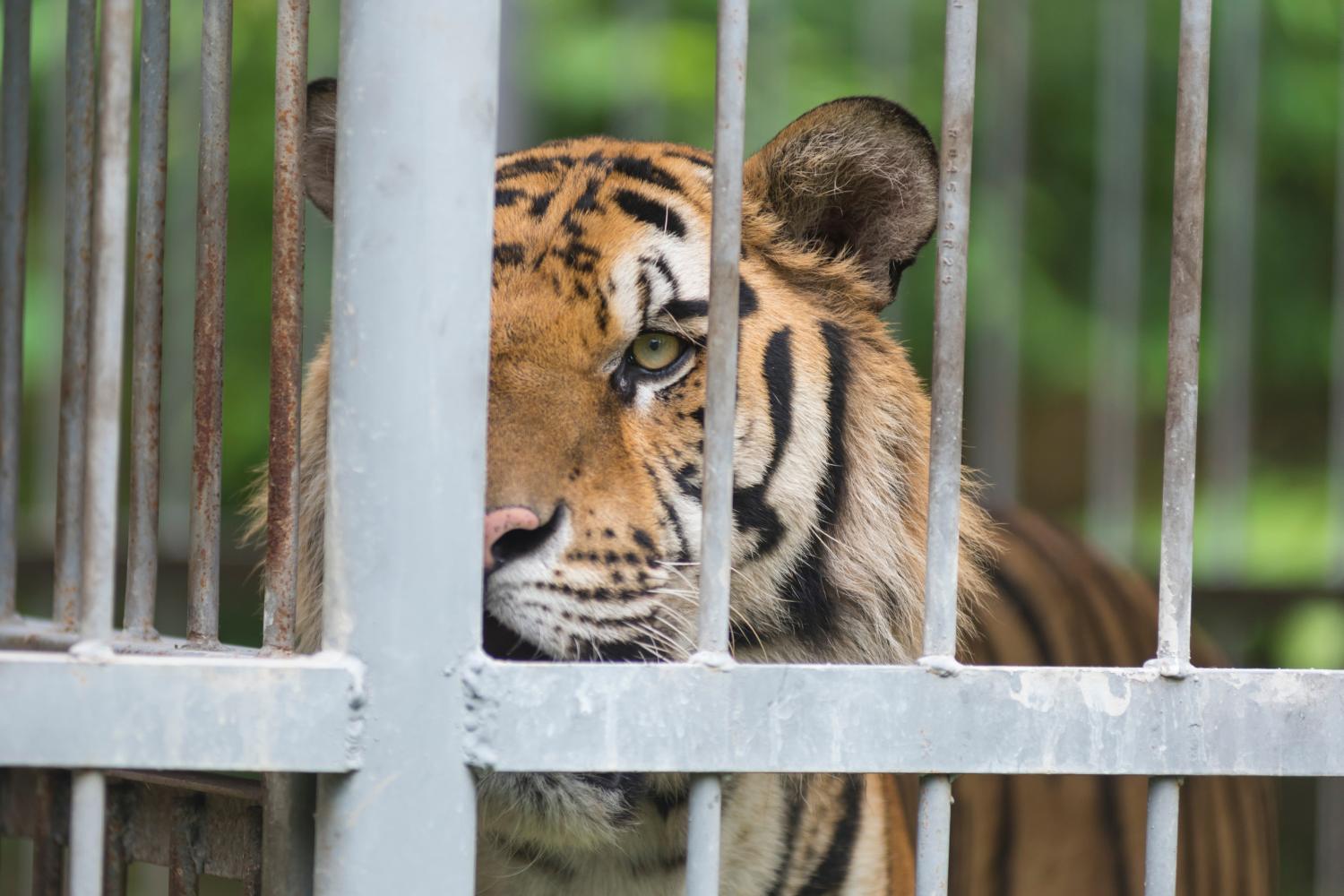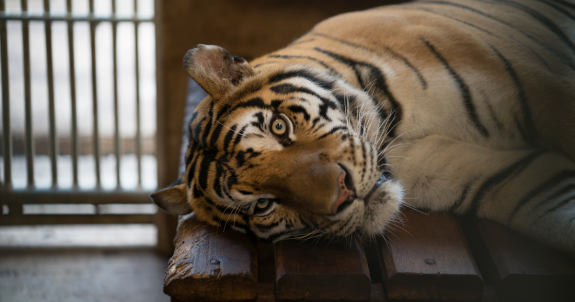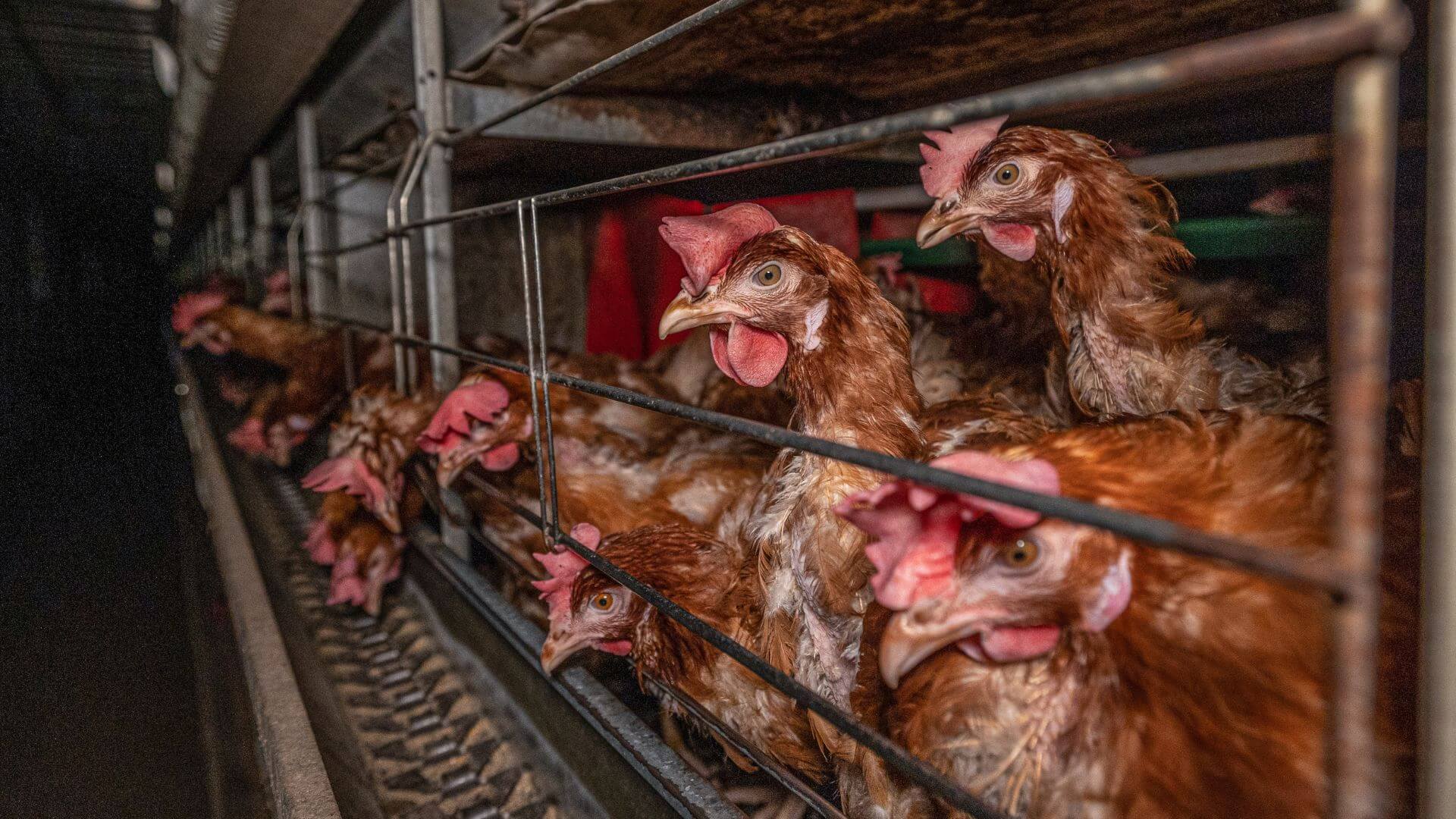Exciting progress! The Senate has voted in favour of an important government bill aiming to ban great ape and elephant captivity in Canada. It will now be studied in more detail by a Senate committee.
On March 19, 2024 at Bill S-15’s second reading, senators voted in favour of moving the legislation forward to the Committee on Legal and Constitutional Affairs, where it will be reviewed and may be amended before it has a final vote. If passed, the bill will outlaw most captivity and breeding of these animals, as well as forcing them to perform for entertainment.
Animal Justice applauds the government for taking the compassionate step to protect elephants and great apes. We’re also advocating to strengthen Bill S-15 by adding big cats, including lions, tigers, cheetahs, and leopards—animals who are held in zoos in Canada, including some of the worst roadside zoos.
Just like elephants and great apes, big cats endure heartbreaking suffering in roadside zoos, and even in private homes. These animals have evolved to roam large territories, and have complex behaviours and social networks. In captivity, the limited space and highly controlled environments often fail to meet their physical and mental needs, leading to serious behavioural and health issues.
Animal Justice has seen first-hand the harm caused to big cats in captive settings. We conducted the largest-ever zoo exposé in the country in 2022, showing many majestic big cats performing troubling, repetitive stereotypic behaviours, such as pacing back and forth along the same path, and rocking over and over—indicating severe mental distress. The exposé also raised the alarm over serious public safety risks at many of these facilities.
In 2016, we conducted an undercover investigation at Papanack Zoo, a roadside zoo in Ontario, where a newborn cougar and a lion cub were taken away from their mothers, and used as selfie props. A zoo owner was seen on hidden camera admitting to hitting a baby lion cub named Ty in the face repeatedly.

Stopping Canada’s Tiger Kings
In Canada, there are nearly 4,000 privately owned big cats. While many of these cats are at prominent zoos in major cities, a great number of these animals are kept in shoddy roadside zoos, and people’s backyards. In most captive settings, big cats cannot thrive like they would in their native habitats, where they are free to live the lives they choose.
There is no national legislation to regulate the treatment of animals in zoos in Canada. In Ontario, exotic animal laws are so weak that zoos don’t even need a license to operate, leaving vulnerable animals to suffer. And there are no provincial restrictions on buying, possessing, or breeding big cats.
Due to weak laws at the provincial and federal levels, municipalities are often forced to pass their own exotic animal laws to protect animals and the public. In Ontario, a so-called Tiger King named Mark Drysdale has opened several roadside zoos, relocating multiple times after municipal bans forced him and his animals out.
In 2021, Drysdale was charged with animal cruelty following the death of a tiger who was mauled to death by two of his lions. Following the troubling incident, authorities investigated the facility, and discovered there wasn’t enough food or water for the big cats and that fruit loops had been left for lemurs. He is now in an unknown location with his exotic animals.
Help stop Tiger Kings in Canada and protect big cats! Urge senators to amend Bill S-15 and ensure these majestic, wild felines are protected from captive cruelty.




